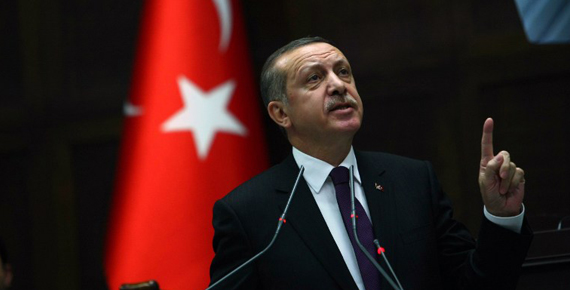The “solution process” for the disarmament of the outlawed Kurdish Workers’ Party (PKK), which is resumed for the second time in the last five years, has led to formation of interesting political positions among the stakeholders. Prime Minister Recep Tayyip Erdoğan and the ruling Justice and Development Party (AKP) are at the center of this new process. During his speech in Diyarbakır in Aug. 2005, Erdoğan, hinting for the first time about how he would approach the issue, has not dropped the Kurdish question nor the PKK’s disarmament off his agenda through the years. Within the frame of responsibilities imposed by being in power and by receiving votes from every part of Turkey, the AKP has adopted towards the issue an approach which is consistent in essence but seems complex from the outside. Those who overlooked Erdoğan’s “course of political engineering”, yet focused on “segments” of it, have been disappointed time after time.
The PKK circles took the lead among those who substantially misinterpreted the AKP and the course of events in Turkey in the last decade. During the AKP government; the PKK, without any exception, never stopped following a course that supported and provided materials for the adherents of the “old Turkey”. Majority of the PKK, and of the political actors and non-partisans around it, had found the AKP as their new enemy. The “world of conspiracy theories ” of the political language adopted by the PKK, worry-free of an end and inconsistent posture has provided abundant resources to demonize the AKP and Erdoğan. This has put into the center of the issue the question of how much and whether the PKK and the Peace and Democracy Party (BDP), who have spent their recent years with “animosity towards Erdoğan, can carry the burden of the 2013 solution process.
The most critical point that emerged after the BDP deputies’ visit to İmralı confirms the importance of this question as well. What has become evident from the document that has been leaked to the press to destroy the process completely, which contained notes prepared by the BDP officials during the İmralı meeting, is that the actors will have difficulty to carry the 2013 process. Discussions reveal that the PKK leader Abdullah Öcalan, by posturing himself in 2013; the BDP, by remaining in the 1990s; and the PKK itself, by remaining in the 1980s; are trying to be the actors of this process. In this deepening political synchronization crisis, the 2013 solution process will try to pave a way for itself.
If we begin with Öcalan, the picture is not surprising. Öcalan is quite pragmatic in his own world built by his idiosynchratic traumas. The two words he uses frequently are “conspiracy” and “agents”. Most of the time, he prefers these words even in ordinary and clear situations. Öcalan joins those who believe that they are the reason behind the tremendous change Erdoğan and the AKP have made in Turkey in the last decade. Öcalan does not give much credit to the “possibility of normal evolution of events” and keeps searching for a “higher up power and will” behind these events. He has followed a similar reasoning during the last decade and kept after the question of “who is the real will-power in Turkey?” All in all, it seems that he has finally begun to face the fact that “the elected” merely saved themselves from “the abuses of power centers in old Turkey” and came to power, although delayed for a half century. Not stopping at this point, it appears that Öcalan has also realized the center of gravity of Turkey in the new regional equation. For this reason, Öcalan becomes the first PKK actor who sees the “disarmament of the PKK” during the solution process not as a matter of choice but a necessity. The Öcalan figure that emerges from the world of complex conspiracy theories and meta theories is quite compl









